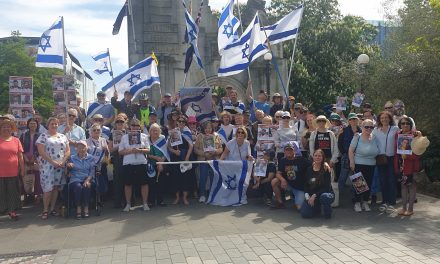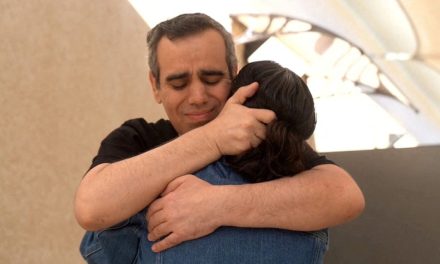Bernard (Dov) Spolsky, 1932-2022 z’l
Although he spent much of his life in Israel, Professor Bernard (Dov) Spolsky, who died recently in
Jerusalem at age 90, remained proud of growing up as part of the Wellington Jewish community.
Indeed, his experiences as a young man in New Zealand launched Bernard on his remarkable journey
towards becoming an internationally-recognised socio-linguist, and an expert in the revival of
endangered languages including te reo Māori and Hebrew.
His early years were quite typical of life for a Jew growing up in Wellington in the 1930s and 1940s.
His parents, Abe and Ellen (née Green) had come to New Zealand when they were young, part of
families that moved first from eastern Europe to the United Kingdom and then on to New Zealand.
The Spolsky family were far from wealthy but instilled in young Bernard an abiding belief in the
importance of education and connection to the Jewish people. Life revolved around the then new-
Jewish community centre.
Bernard spent his Friday nights and Saturday mornings in synagogue, while Shabbat afternoons were for playing sports. Sundays were dominated by Hebrew school and by Habonim, the left-wing Zionist youth group. His parents were also heavily involved in community activities, and for adults in those pre-television days, the Jewish social club was like a second home.
World War Two left its mark on Jewish life in Wellington in large and small ways. Bernard always
remembered that war-time shortages meant that his bar mitzvah in 1945 was a rather quieter affair
than usual. He did not receive the traditional bar mitzvah gift – a fountain pen – while the adults
bemoaned that no whiskey was available for the celebratory Kiddush.
But what really shaped Bernard’s future was the establishment of the State of Israel. He, like a
number of his comrades in Habonim, soon began hatching plans for Aliyah. His parents were less
enthusiastic about him leaving. They were passionate Zionists but worried that the community
would not survive if its most committed young people settled in Israel. Even in 1948, people were
predicting the imminent demise of Jewish communal life in Wellington!
Eventually, Bernard’s dreams of Israel won out. After completing a degree at what was then known
as Victoria University College and a stint teaching, Bernard sailed in the 1950s to Europe and then on
to Israel. He spent time with New Zealanders who had settled on Kibbutz Yizre’el before serving in
the Israeli army. But romance and a desire to further his studies cut short his ‘first Aliyah’.
In Jerusalem, he had fleetingly met a young woman visiting from New York. The usually calm, quiet
Spolsky was immediately smitten and travelled to North America hoping to win her hand. He faced
resistance from her parents, who were skeptical of his prospects and bewildered by his New Zealand
accent. But the end result was a wonderfully happy marriage of sixty years to Ellen Spolsky, who was
herself to become a prominent academic.
Like his marriage, Bernard Spolsky’s rise to academic success was an international affair. As a young
man, he had briefly taught at Gisborne High School. By the 1950s, te reo Māori was in rapid decline
and officials were pushing Māori to give up on the language if they were to ‘succeed’. However,
Spolsky came to a very different conclusion.
He noticed that the Māori students he taught who spoke te reo at home tended to do better in English – and in their studies in general – than those Māori students who had less connection to te reo. This sparked Spolsky’s belief that bilingualism and multi-lingualism were of tremendous value: culturally, cognitively and educationally.
After completing his PhD at Montreal University, Spolsky became a pioneer in the new field of socio-
linguistics – the study of the various factors ranging from government policy to what languages were
spoken in schools, workplaces and especially homes – which determined whether a language
flourished or declined.
He worked first with Navajo in New Mexico (where he and his wife helped establish a synagogue and
Jewish school) before the family returned to Israel in 1980. There he began comparing the revival of
Hebrew to situations facing other countries and cultures.
Among his many books was a study of how dozens of languages – from Hebrew, Yiddish and Arabic to Armenian and Ge-ez – continued to be spoken by residents in Jerusalem’s tiny, cramped Old City. The Spolskys themselves lived in the Old City and many New Zealanders enjoyed the family’s hospitality and generosity.
Bernard frequently visited New Zealand where he was much sought-out by Māori language activists keen for his insights into how te reo could be strengthened. He was an early observer and supporter
of the kōhanga reo and kura kaupapa movements while emphasizing the need for a sustained, multi-
layered program that would allow Māori to again become a language of everyday use.
Retirement from Bar Ilan University (near Tel Aviv) in 2000 did not slow him down. Reviews described his book Rethinking Language Policy as ‘unparalleled, a world tour of language policy by a scholar whose work has defined the field’.
He also wrote a monumental study of Jewish languages over the centuries, a subject close to his heart. Even into his late eighties, he still wrote, lectured and travelled widely. Always understated in manner, he was quietly bemused to be greeted on a recent trip to India by large billboards bearing his photo and welcoming ‘Professor Spolsky – world champion linguist’.
Blessed with a happy family life, he died at home surrounded by his wife, children, grandchildren and by a much-adored great grandson. He is also remembered with love by his sister Ruth Thomas, who lives in Wellington and by her family, and by the many who benefited from his scholarship, generosity and unfailing decency.
May his memory be for a blessing.






